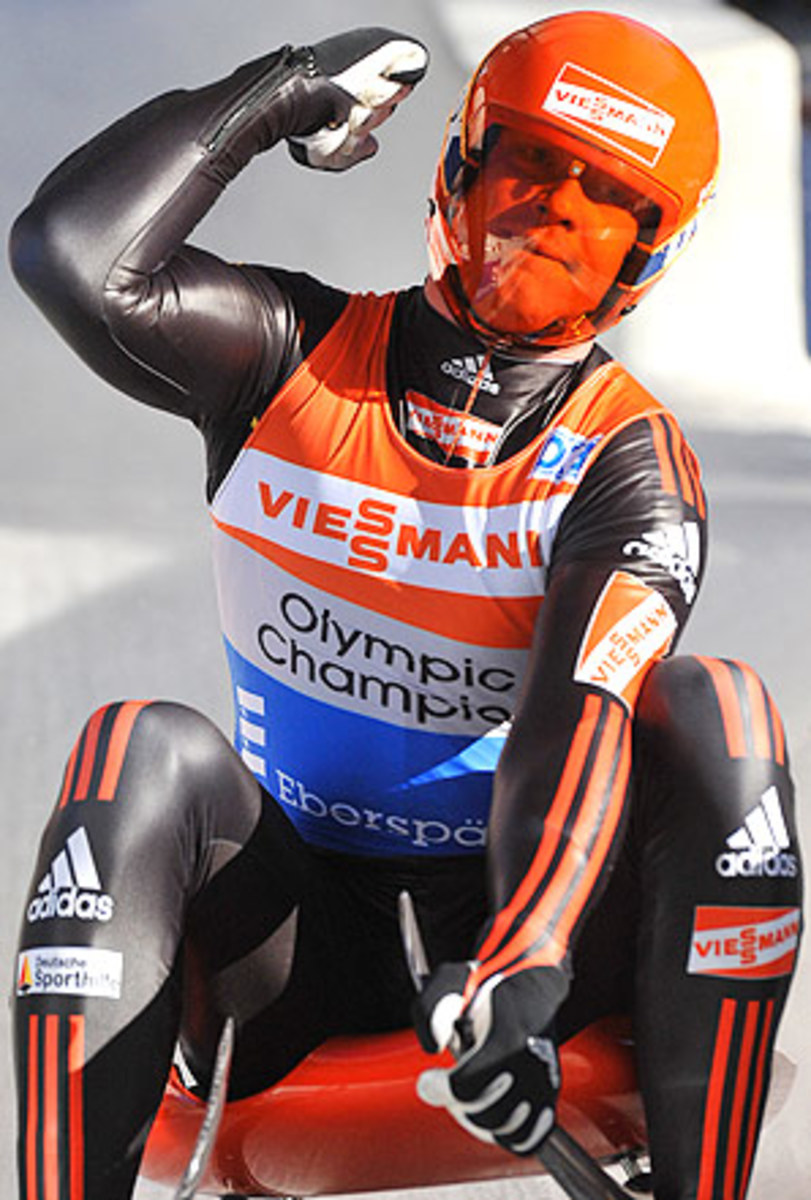U.S.'s women skiers take third, eighth in slalom event
In 1992, the BOA enacted a lifetime ban from the Olympic Games for doping cheats; this decision exceeds the punishment set forth by WADA, which sets the code followed by the International Olympic Committee and its member sports governing bodies. Whereas, for instance, an athlete caught with a banned substance, might receive a six-month suspension under the WADA code, the BOA would suspend the athlete from all competition for two years and from Olympic participation for life. But with the London Games less than a year away, the BOA's punishments have come under scrutiny from WADA just as WADA's standards are being seen as too lenient in many camps.
WADA Chairman John Fahey said that as a signatory to the code, the BOA had to "accept and implement all of the provisions of the code, including those relating to sanctions, and to abide by them." BOA boss Lord Colin Moynihan said he was surprised that WADA "are the ones taking us on and not the banned athletes." Moynihan has defended his association's stance, citing "redemption for the clean athlete denied selection by a competitor who has knowingly cheated." Both sides dug in: WADA leadership presented a report in which it said the BOA was noncompliant, while the BOA insisted it would defend its tough approach and had a right to implement it domestically. Sprinter Dwain Chambers and cyclist David Miller are among those whose Olympic eligibility would be reinstated if the WADA standard prevails. So would world team member Carl Myerscough, a discus thrower who tested positive for multiple banned substances back in 1999.
In announcing the review, WADA asked national governing bodies to submit recommendations for a new code by March 15. Though the review wouldn't conclude until November 2013, well after the next Olympics, signs of a future appeasement with Britain could avoid an ugly stare-down contest, threats of sanctions and even suspension of the BOA, a scenario that would never happen with London set to host the Games next summer.
Breaking a seven-year World Cup podium itch, Julia Mancuso put together two strong runs in the giant slalom last weekend to finish third, behind Viktoria Rebensburg and Elisabeth Goergl, who took first and second, respectively. She secured the first top-three World Cup finish by a U.S. skier at the alpine races in Aspen since Kristina Koznick took third in the slalom in 2004. No U.S. woman had reached the podium in a giant slalom competition in Aspen since Tamara McKinney took third in 1981. Germany's Viktoria Rebensburg finished first. Lindsey Vonn finished 12th after a poor first run in a week when her split with husband and coach Thomas Vonn became public.
Still, the most impressive run of the weekend came from 16-year-old Mikaela Shiffrin, who finished eighth in the slalom in only the second world-cup slalom of her career. "It's probably going to take five years to even realize I'm racing World Cup," said Shiffrin, who began skiing in Vail before moving to New Hampshire and then to Vermont's prestigious Burke Mountain Academy, a haven for ski phenoms. She won the U.S. slalom title last March.
The luge team relay debuted on the World Cup scene this weekend, in Igls, Austria, two years before its first appearance on the Olympic stage. Athletes must cross a finish line and make contact with a touch pad in order to trigger the opening of a start gate for their successive teammates. The event combines one run each from a male racer, a female and a doubles team. The Canadian team finished first in Igls, followed by teams from Germany and Russia. The U.S. squad that included 2009 world champion Erin Hamlin finished sixth. Olympic champ Felix Loch of Germany took the men's competition just ahead of countryman David Möller.
Four U.S. beach volleyball players were among those honored with international awards for their outstanding play in international tour events in 2011 by the FIVB, the sport's international governing body. For the women, Kerri Walsh earned her fifth award as Outstanding Blocker and was also voter Most Inspirational. Misty May-Treanor, Walsh's longtime partner, was awarded Best Defensive Player. April Ross took the honors for Best Hitter and Best Server. For the men, Phil Dalhausser was named the Best Setter for the third year in a row.
Indian Olympic officials now insist there is no plan to consider a boycott of the London Olympics, backtracking on earlier statements that a boycott referendum could be in the works. The Dow Chemical Company has been contracted to build a wrap around the Olympic stadium, a main facility of the 2012 Games. However, a number of Indian athletes pushed the Indian Olympic Association to vote on a possible boycott as a result this sponsorship.
In Dec. 1984, the Union Carbide India Limited pesticide plant in Bhopal, India suffered one of the worst industrial catastrophes on record. The UCIL pesticide plant leaked methyl isocyanate gas, which led to an announced death toll of 3,000 people and injuries that, according to government records, totaled over 500,000. At the time, the UCIL was partially owned by the Union Carbide Corporation; the UCC has since then sold its interest in UCIL ( which is now renamed Eveready Industries India Limited). However in 2001, UCC was purcahsed by Dow Chemical as a wholly owned subsidiary.
Even though seven UCIL employees were fined about $2,000 and received suspended two-year prison sentences for negligence as a result of the disaster, there has been a public outcry that the punishments were too lenient. Some litigation pertaining to the 27-year-old case is still pending. A group of 21 Indian athletes petitioned the IOA to scrap Dow's sponsorship and officials initially said that members would vote on a possible boycott on Dec. 5. They have since amended those comments to confirm concerns, while insisting that there is no boycott vote planned.





